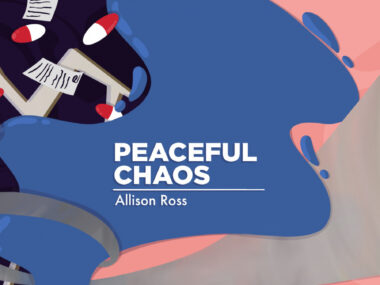With vasculitis, emotional healing is up to me, not my care partner
My wife may help me physically, but I'm responsible for my emotional wounds
Written by |

Spoiler alert: I think, in the end, only the person living with a chronic disease can soothe themselves.
The other day, my wife, Pam, and I had one of our car conversations. You know the kind — where the road ahead somehow makes it easier to see things clearly. Sometimes these talks are full of insight and connection. Other times, we find ourselves crashing headfirst into a boundary we didn’t know was there. Our recent discussion was one of the latter.
To rewind, I’m four and a half years into my life-changing illness, ANCA vasculitis, and four years post-diagnosis. Four years of medication regimens that have reshaped everything — my body, my energy, my cognition, and even my personality. Our world, after 25 years together, turned upside down. And while I’m probably the only one who fixates on the physical changes, the shame still seeps out. Regularly. Quietly. Often sideways.
That shame — my grief, self-doubt, insecurity, and anxiety — has a way of spilling out at home, specifically, onto Pam. That was the heart of our recent conversation.

Evening sunset drives allow for transformative conversations without the intensity of staring at each other. (Courtesy of Sarah Jones)
My wife is an extraordinary partner and caregiver. Her patience with my disease, brain fog, and fluctuating energy is truly remarkable. I consider myself one of the luckiest people in the world to have her, in all aspects of life. And I see how much it takes from her, emotionally and physically. Although I sometimes wrestle with the guilt of feeling like a burden, she rarely speaks of it.
But the other day, I said something — another throwaway self-insult about my body or functioning — and suddenly, we were in it. A hard moment. A truth bomb.
The truth? I ask her, again and again, to soothe something she can’t fix. I fish for reassurance that I still look OK, that I’m still lovable, still enough. I didn’t fully realize how much I do it — how often I turn to her to patch the wounds this disease keeps opening.
And then she said it, with tears in her eyes and frustration in her voice: “I can and want to be your physical caregiver. I have endless capacity for that. But I can’t be your emotional caregiver in this way. I love you and I’m good with you. But it’s exhausting to be asked to constantly convince you that you’re OK. You have to believe it yourself.”
Oof. It hit hard.
But she was right. So where does that leave me? How do I start believing I’m OK as I am? With the weight gain, the fatigue, the mental lapses, the changes I still grieve? How do I accept this new version of myself and still feel worthy of love?
I don’t have the answer yet. But I know one thing: In the end, emotional healing has to start with me.
It’s not just about repeating affirmations in the mirror. It’s more complex, stitched into the grief, the identity shift, the frustration. And while I might not direct this kind of emotional need toward others, I’ve also learned to hide from them, to shut down rather than risk rejection. Neither approach is living.
There’s a tool I’ve heard of called “act as if.” The idea is, even if you don’t believe something yet, act as if you do. Eventually, your mind and heart will start to catch up.
So, for now, I’m going to try that. I’m going to act as if I’m worthy, just as I am. As if I’m fully lovable, even with the scars and the side effects, even in the messiness of this disease.
Maybe, someday soon, I’ll believe it, too.
Note: ANCA Vasculitis News is strictly a news and information website about the disease. It does not provide medical advice, diagnosis, or treatment. This content is not intended to be a substitute for professional medical advice, diagnosis, or treatment. Always seek the advice of your physician or other qualified health provider with any questions you may have regarding a medical condition. Never disregard professional medical advice or delay in seeking it because of something you have read on this website. The opinions expressed in this column are not those of ANCA Vasculitis News or its parent company, Bionews, and are intended to spark discussion about issues pertaining to ANCA vasculitis.






Cara
This resonates with me. It's a hard truth. Thanks for sharing your heart. I will have to try the "as if," attotude.
Sarah Jones
So hard! I am glad it resonated. This is not an easy process. Sending you good thoughts!